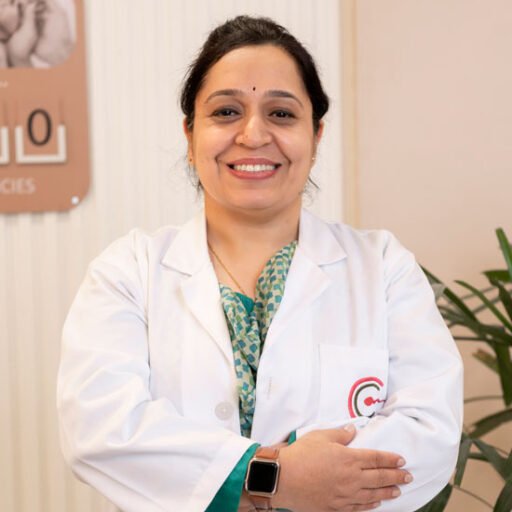What is Female infertility?
According to Dr. Puneet Rana Arora, a renowned IVF doctor in India “Female infertility” means when a woman can’t conceive or keep a pregnancy to term. Couples who have been trying to conceive for a year or longer without success are usually diagnosed with it.”
There are a number of potential causes of infertility, including problems with the reproductive system, hormone abnormalities, and other medical disorders.
Common causes of female infertility:
Here are some situations in which women or couples face infertility problems and may consider seeking IVF treatment at our centre:
- Fallopian Tube Issues: If there are any blockages or damage to the fallopian tubes in female, preventing the natural passage of eggs from the ovaries to the uterus, then IVF treatment can be a viable option for fertility.
- Severe Endometriosis: IVF may be suggested by Dr Puneet Rana Arora for people with severe endometriosis that haven’t reacted to other treatments.

- Ovulatory Disorders: In vitro fertilisation (IVF) is an option to consider when ovulation problems persist after several unsuccessful treatments. At our IVF Centre, Dr. Puneet offers evidence based and ethical treatment after evaluating your conditions.
- Unexplained Infertility: In the absence of a definitive diagnosis following comprehensive diagnostic testing and ineffectiveness of alternative treatments, in vitro fertilisation (IVF) may be suggested as a subsequent course of action.
- Male Factor Infertility: In a few circumstances where the male partner has fertility concerns (such as poor sperm count or motility), IVF with intracytoplasmic sperm injection (ICSI) can be used to inject a single sperm into an egg.

- Advanced Maternal Age: Because fertility decreases with age, infertility in women of advanced maternal age (usually 36 and up) may prompt them to explore in vitro fertilisation (IVF) as a treatment option.
- Previous Unsuccessful Treatments: IVF may be considered if alternative fertility treatments, including ovulation induction or intrauterine insemination, have proven to be ineffective..
- Genetic Disorders: In vitro fertilisation (IVF) with preimplantation genetic testing (PGT) is an option for couples who are concerned about passing certain genetic illnesses on to their children. PGT screens embryos for certain defects before they are implanted.
What is the diagnosis process?
Finding the precise cause of female infertility frequently entails a thorough medical history, physical exams, and a variety of testing, such as imaging scans, hormonal tests, and occasionally surgical treatments.
Infertility problem – IVF Treatment in Gurgaon
Depending on the underlying cause, treatment options may include lifestyle modifications, pharmaceuticals, surgical intervention, or assisted reproductive technologies (ART) like in vitro fertilisation (IVF).
As a reproductive technology, in vitro fertilisation (IVF) may be utilised to treat female infertility. A consultation with Dr Puneet Rana Arora, fertility specialist or reproductive endocrinologist is recommended prior to pursuing IVF.

She will evaluate specific circumstances, offer advice on prospective success rates, and engage in a discussion regarding the risks and benefits associated with the procedure.
At CIFAR Infertility Centre, where the clinic is equipped with the most advanced IVF technology and OT, we offer the world-class and safest environment for fertility treatment in the Delhi NCR region.

The optimal timing and suitability of IVF will ultimately be contingent upon the precise diagnosis, the woman’s age, the duration of infertility, and other pertinent criteria. Consulting a healthcare professional is essential for making well-informed decisions on fertility treatment alternatives.


